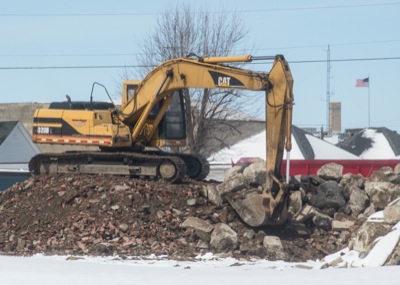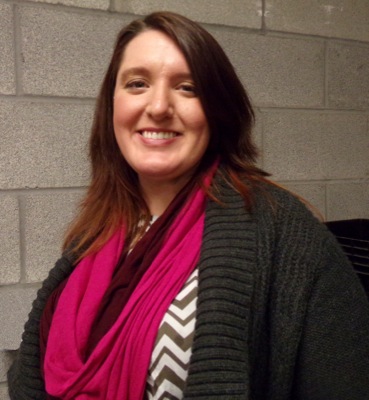Wednesday, March 25th, 2015
Townships struggle with decreased funding
By Shelley Grieshop
CELINA - Crumbling roads and bridges may soon be the norm in Mercer County unless new funding sources are found.
Local officials who gathered Tuesday night for the annual Mercer County Township Association spring meeting said the public needs to understand their fiscal challenges and consequences following deep cuts in local government funding and the loss of estate taxes.
"We all face the same thing," Hopewell Township Trustee Eldon Sell noted after a PowerPoint presentation by county engineer Jim Wiechart regarding long-term sustainability.
Township trustees and fiscal officers, as well as several county leaders, discussed the possibility of new levies or other taxes to boost revenues, but took no action.
State funding this year for all 14 townships totals $181,488. Distributions - based on population, valuation and road miles - range from $9,201 for Union Township to $21,397 for Jefferson Township.
The state in 2012 and 2013 cut LGF by 25 percent to balance its own budget. Prior to that, local townships split $341,202 in 2011 and $239,030 in 2012.
County auditor Randy Grapner provided some good fiscal news: Each township will soon share $107,000 in a one-time allotment from the Local Government Innovation Fund. The township-only dollars were stipulated in recently passed Senate Bill 243, he said.
"We'll start cutting you checks shortly," Grapner said.
He also noted the amount townships receive from county real estate tax collections is up for the first half of 2015, mainly due to an increase in the value of agricultural land. Townships will divide $1,425,257 - an increase of $240,173 from the first half of 2014.
Grapner advised township trustees to add zoning inspector reports to their meeting agendas to keep his office aware of new construction. The action was prompted when the auditor's office recently discovered two new homes in Gibson Township not on the tax map or billed for property taxes.
One of the homes is a 5,800-square-foot structure built in 2009. Grapner notified the homeowner who promptly paid the approximately $43,000 due in taxes.
The owner had received the necessary zoning and other permits for the property but the information was never relayed to the auditor or tax map offices, Grapner said. Subsequently, the political subdivisions in that area such as the townships and schools did not receive their portion of tax revenues, Grapner said.
The second home - also in Gibson Township and built in 2011 - was discovered about a week later, he said.
Grapner now twice per year requests records from zoning inspectors and trustees to help keep his office informed of all new construction in the county.
County assistant prosecutor Andy Hinders said officials must "band together" to make the system work.
"You guys can be the solution," he added. "Have your zoning inspectors report at each meeting."
Wiechart, who works closely with township trustees for road and other projects, detailed the financial struggles of his office. The majority of his department's funding is from license fees and gasoline taxes, which have declined the last six years, he said.
As revenues dwindle, roadwork expenses continue to climb, Wiechart said. For example, the cost of hot mix resurfacing has increased 93.5 percent in the last nine years, he said.
"A lot of people who don't live in our world can't understand why we can't pave their roads every three years," Wiechart said.
The cost to maintain the county's 384 miles of roadways is an estimated minimum of $5.6 million per year, he said. His annual base revenue is $4.78 million, he added.
Other big expenses for the engineer's office are snow removal, bridge and culvert maintenance and replacement, and equipment. He noted employee labor and benefit costs have increased only 1.002 percent in the last nine years.
"It's a funding shortfall to simply maintain" current infrastructure, Wiechart said.
Wiechart said no short-term changes are under discussion in Columbus to provide aid to counties or townships.
"This is not a feeling, emotion or conjecture. This is the reality we are now in ... this is a current and future long-term problem with the basis in math and logic," he said.


